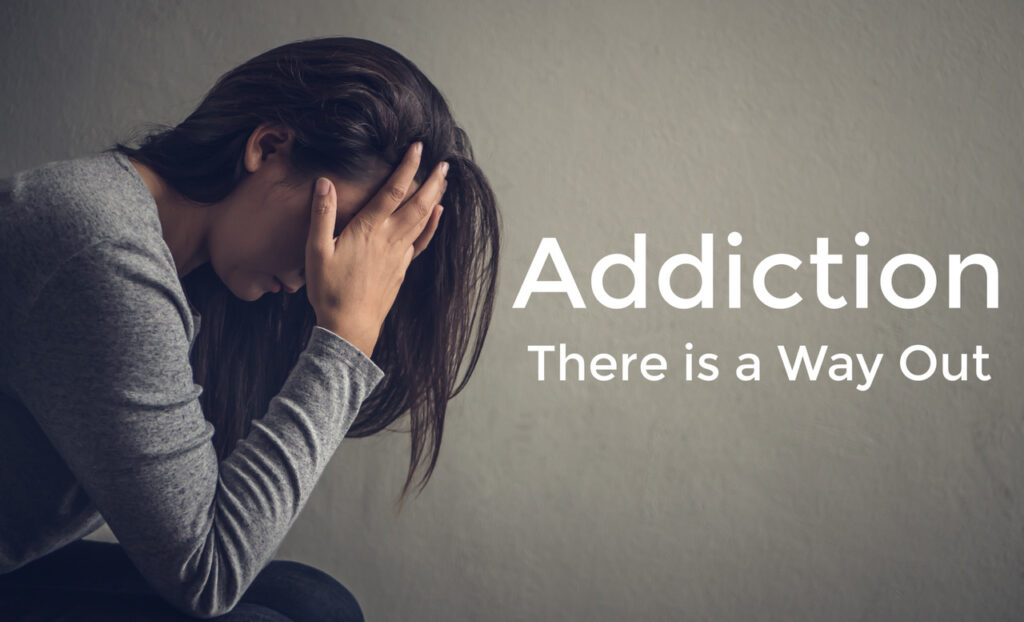We live in the age of addiction. Uncontrollable desire and reckless overconsumption seem to be everywhere. We all know people which society has labelled as “true addicts”, however, we often overlook the unconscious addictions in ourselves and see these tendencies as nothing more than non-threatening character flaws.
During these uncertain times with the threat of COVID-19 causing forced isolation, social distancing and a climate of fear, these unconscious addictive tendencies may become amplified as we distract ourselves from the rising fear and anxiety within.
An example of this is a client named Frank who came to see me for his growing anxiety and depression After several sessions of neurofeedback, Frank realized that he had been addicted to food and sugar for years. “Sugar has been my coping mechanism to deal with stress, depression and anxiety. However, this truth lived in my subconscious mind, so I was not aware of it.”
So, what is addiction? Psychologist Dr. Carter Stout describes addiction as “energy that flows through the body and lodges it in the mind. Initially, it saturates the body with a sense of longing and fills the mind with invasive and obsessive thoughts. These repetitive thoughts will not cease until some sort of compulsive act has been committed.”
An analogy often used to describe addiction and how to heal it is the following: the neural pathways in our brain are like trees in a very dense forest. In this forest we tend to automatically follow the well-worn path dictated by our established neural pathways. But in order to change our behaviour we have to create new paths. This typically takes a lot of effort as we visually use an axe or chain saw to cut down the trees allowing space for new paths to be created.
So how does neurofeedback help with addiction? Neurofeedback cuts down the trees for you. Working with the mind and the overstimulated central nervous system, neurofeedback opens up space in the mind revealing more choice and clarity which can lead to the creation of new neural pathways.
This was Frank’s experience who, after undergoing a number of neurofeedback sessions and supportive counselling said, “These sessions have been paramount in allowing me to heal my anxiety and depression. I have learned to be kinder, more compassionate towards myself allowing me to see my sugar addiction more clearly, so I could then acknowledge it and make new choices. After years of struggling with weight and health issues, I now have a positive relationship with food. I am able to easily choose a healthier lifestyle and I am losing weight!”
Another example is Susan’s. Like many people, Susan spent the majority of her life using alcohol as an escape from physical and emotional pain caused by childhood trauma. Labelled an alcoholic and drunk by most and despite many desperate attempts to stop, she would always find herself back at the liquor store after a period of heavy binge drinking and detoxing.
Then one day everything changed. “My trusted counsellor at CWAV suggested I try neurofeedback. I was skeptical. The session was easy and relaxing, and I was instructed to pay attention to any shifts that may occur in the next few days. In the days that followed I experienced a monumental, undeniable, life-changing shift—a day or two after my session I was startled to realize that I had no craving for alcohol whatsoever. I drove right by the liquor store—that formerly had a magnetic pull—without even noticing.
My entire relationship with and orientation towards alcohol had changed. I no longer see alcohol as my escape, my refuge, my enemy. It just is. I has no more significance than any of the other thousands of thoughts that run through my mind on any given day. Alcohol no longer controls me, it is now a neutral entity in my life. Consequently, I now feel I have a choice to choose a healthier life. My life has been saved! “
What happened to Susan and Frank? Through neurofeedback the brain patterns that kept their addictions alive began to dismantle. This allowed more space to open up, giving them more choice and eventually an ability to change their behaviour towards a healthier lifestyle.
If you are finding it challenging to sustain a healthy mind and lifestyle during these unprecedented times remember that you are not alone. Support is available. For more information contact Lesley Young at 250-533-9797.

